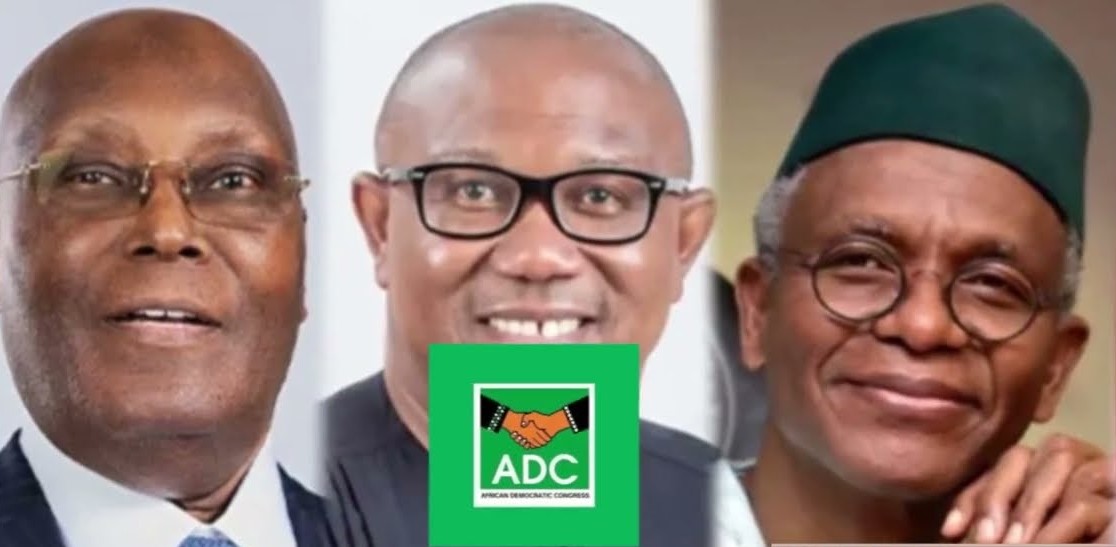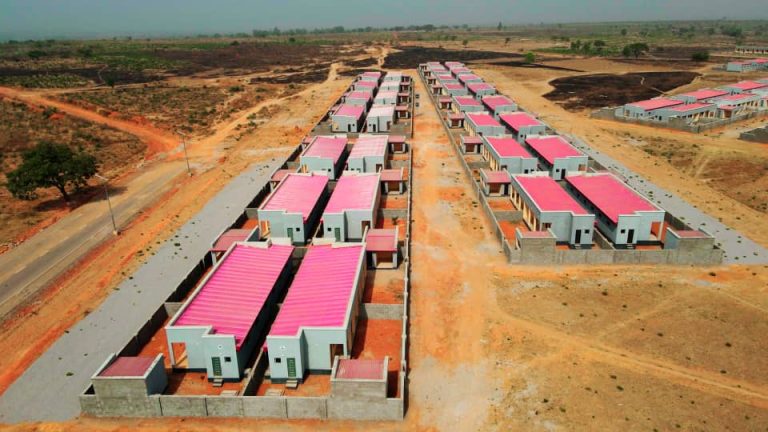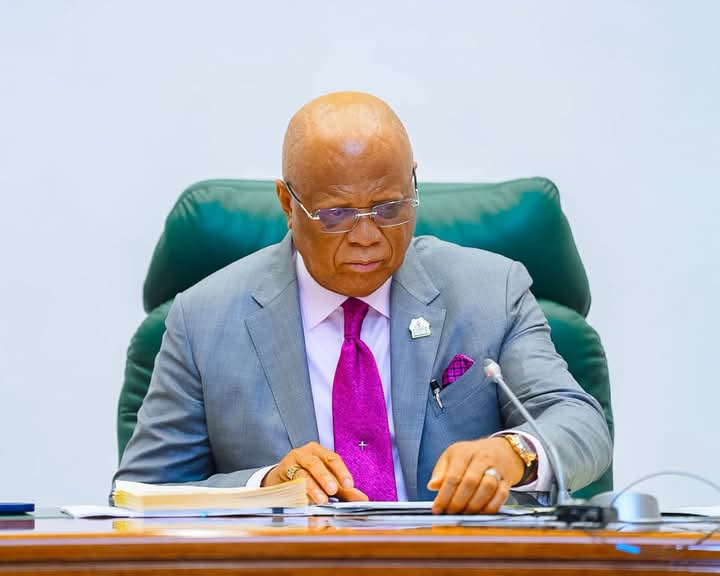
BY EMMANUEL EMMANUEL
The unveiling of the African Democratic Congress (ADC) as the chosen platform for a coalition to challenge President Bola Ahmed Tinubu in 2027 has been met with predictable fanfare from familiar faces. But beyond the headlines and hurried press briefings, what was truly unveiled was not a political master plan; it was a resurrection of a failed past, dressed in borrowed robes and desperate to deceive a new generation of Nigerians.
This coalition, spearheaded by long-serving political actors from various regions and formerly powerful offices, is nothing more than the reassembly of Nigeria’s establishment elite, repackaging themselves as saviors. From former vice presidents and ex-governors to retired ministers and one-time lawmakers, these are men who wielded power at the highest levels for decades, and yet, left behind a legacy of dashed hopes, squandered opportunities, and institutional rot.
They claim to be Nigeria’s hope for redemption, yet they are the very architects of the broken system they now campaign against. Their sudden rediscovery of patriotism barely years after being rejected at the polls or dismissed from public service reeks not of conviction, but of convenience. Nigerians have seen this script before. We saw it in 2015, when a similar coalition was cobbled together to remove a sitting government. The result? Years of rudderless governance, policy somersaults, economic backsliding, and deepened insecurity. Once again, history is being set up to repeat itself, but Nigerians are wiser.
The ADC platform they now clutch onto is not a symbol of political rebirth; it is a refuge for displaced ambition, a last resort for individuals too unpopular to secure platforms within mainstream parties. A coalition built around mutual resentment for the present administration, not a shared vision, cannot inspire the nation. This alliance lacks ideological direction, policy clarity, and structural cohesion. Beyond criticising Tinubu, they have offered no roadmap, no economic agenda, no governing philosophy, just recycled outrage from familiar faces.
What Nigerians must interrogate is simple: Where were these men when it mattered most? When insecurity ravaged our land, they sat in high office. When our educational system deteriorated, they held the purse strings. When youth unemployment rose to crisis levels, they looked away. Their combined years in power span every administration since 1999, and yet, the average Nigerian has little to show for their reigns beyond empty rhetoric and expensive political rallies.
Now, with access to power lost and the control of national institutions slipping away, they have regrouped not out of patriotic duty, but out of political survival. Their return is not fueled by reformist zeal, but by a desire to reclaim the privileges of office. It is the most cynical form of politics: a gathering of yesterday’s men pretending to have tomorrow’s answers.
And let us be frank, the ADC is not a viable vehicle for national transformation. Its presence on the political landscape has been largely ceremonial. In every electoral cycle, it has failed to demonstrate grassroots appeal, national traction, or organisational competence. To now rebrand it as a coalition platform is to pour old wine into a broken bottle. It is theatrics without substance.
The Nigerian electorate has matured. Sentiment and propaganda no longer win elections; records do. And the record of this coalition is public, painful, and permanent. Nigerians are not seeking a return to the familiar hands that led the country into disillusionment; they are demanding a new direction powered by performance, innovation, and integrity.
This ADC coalition is not a political strategy. It is a protest group in disguise. It is dead on arrival, not because of who they oppose, but because of what they represent: a failure to reinvent, a refusal to let go, and an insult to the collective intelligence of the people.




